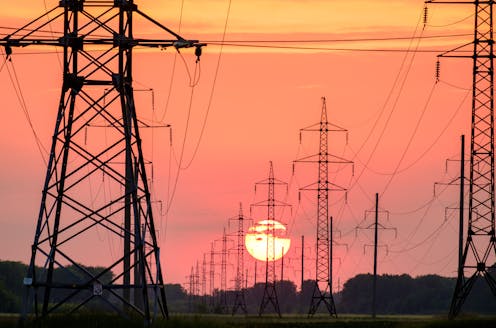We need to decarbonise our electricity supply, and quickly – Alan Finkel shows how green energy can be a reality, and bring economic benefits
- Written by John Quiggin, Professor, School of Economics, The University of Queensland

We use energy in everything we do, but few of us understand it properly. Much of the time this doesn’t matter. We can flick a light switch or turn the ignition key in a car, knowing the technology will work whether we understand it or not. Even something as simple as the distinction between alternating current and direct current is a mystery to most people without a scientific education.
But thanks to climate change, we can no longer be comfortably ignorant. A better understanding of energy systems is urgently needed if we are to transform those systems successfully.
Review: Powering Up: Unleashing the Clean Supply Energy Chain – Alan Finkel (Black Inc.)
The science of climate change is complex – too complex for any individual to comprehend completely. It encompasses physics, chemistry, time-series statistics and computer modelling, among many other issues. But by now, thanks to the work of communicators like the Intergovernmental Panel on Climate Change, most of us understand the basics.
The exception to this general understanding is the shrinking group of self-described “sceptics”, determined not to understand. Members of this group pride themselves on “doing their own research”. This catchphrase does not mean “undertaking years of intensive training in science and research methods, then applying it to the study of complex problems”, but rather “using Google to find talking points that confirm my prior beliefs”.
The central findings of climate research can be simply summarised. Over the course of the 20th century, we used more and more energy, the great majority of it derived from burning carbon-based fuels – oil, coal and natural (methane) gas. The result has been a buildup of carbon dioxide and other greenhouse gases in the atmosphere, trapping more of the Sun’s heat and radiating less back to outer space.
This process has already caused the global climate to heat up, with some disastrous results, such as wildfires and heatwaves. Global heating will inevitably continue, as will climate-related disasters. If we are to avoid truly catastrophic damage, we need a rapid transition to carbon-free sources of energy for electricity, transport and industrial uses.

















